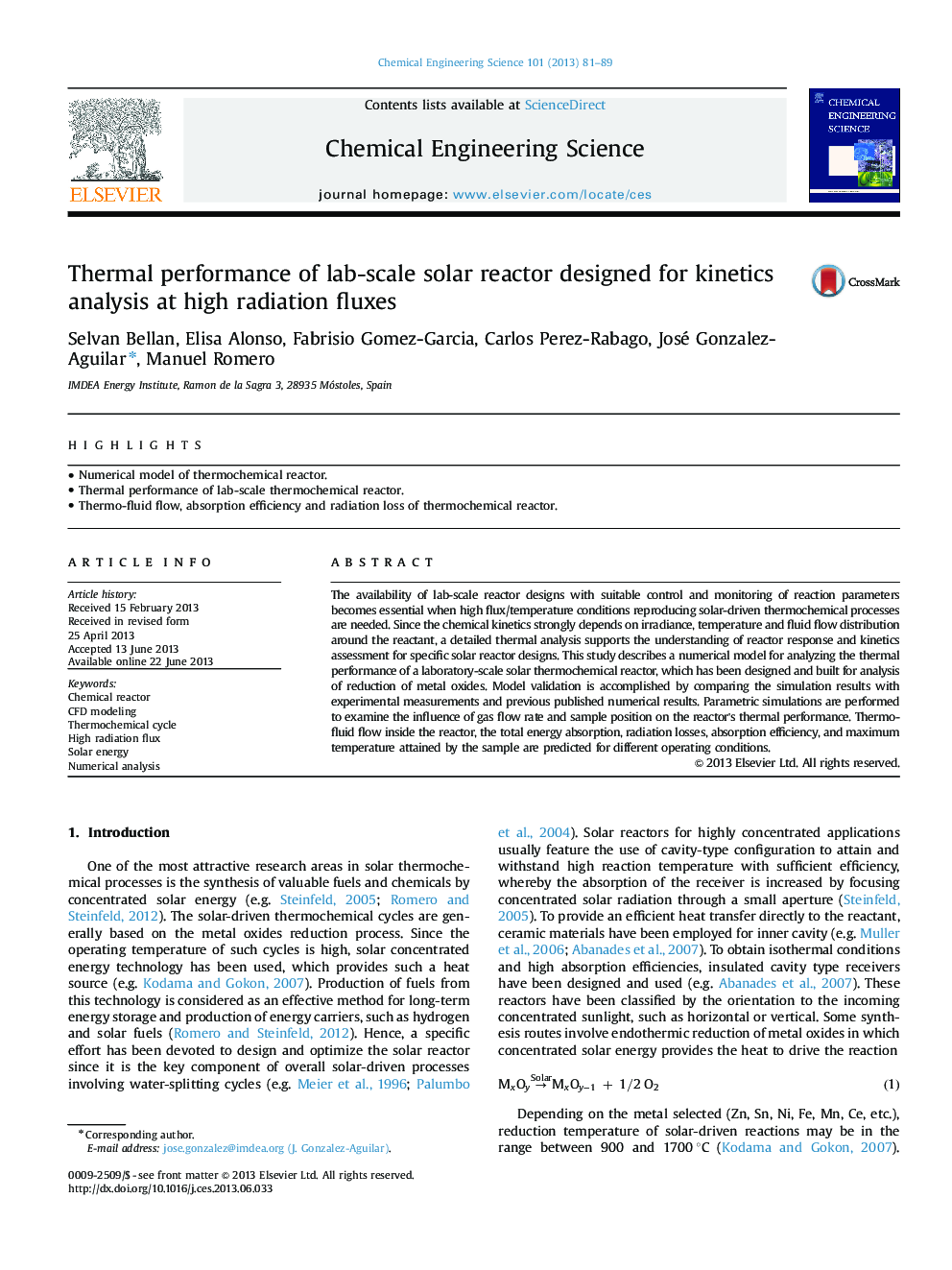| Article ID | Journal | Published Year | Pages | File Type |
|---|---|---|---|---|
| 6591921 | Chemical Engineering Science | 2013 | 9 Pages |
Abstract
The availability of lab-scale reactor designs with suitable control and monitoring of reaction parameters becomes essential when high flux/temperature conditions reproducing solar-driven thermochemical processes are needed. Since the chemical kinetics strongly depends on irradiance, temperature and fluid flow distribution around the reactant, a detailed thermal analysis supports the understanding of reactor response and kinetics assessment for specific solar reactor designs. This study describes a numerical model for analyzing the thermal performance of a laboratory-scale solar thermochemical reactor, which has been designed and built for analysis of reduction of metal oxides. Model validation is accomplished by comparing the simulation results with experimental measurements and previous published numerical results. Parametric simulations are performed to examine the influence of gas flow rate and sample position on the reactor's thermal performance. Thermo-fluid flow inside the reactor, the total energy absorption, radiation losses, absorption efficiency, and maximum temperature attained by the sample are predicted for different operating conditions.
Related Topics
Physical Sciences and Engineering
Chemical Engineering
Chemical Engineering (General)
Authors
Selvan Bellan, Elisa Alonso, Fabrisio Gomez-Garcia, Carlos Perez-Rabago, José Gonzalez-Aguilar, Manuel Romero,
